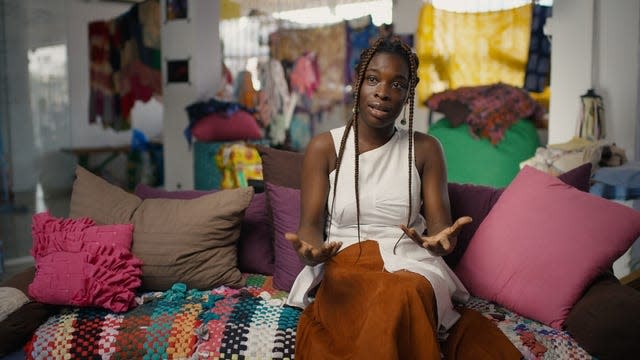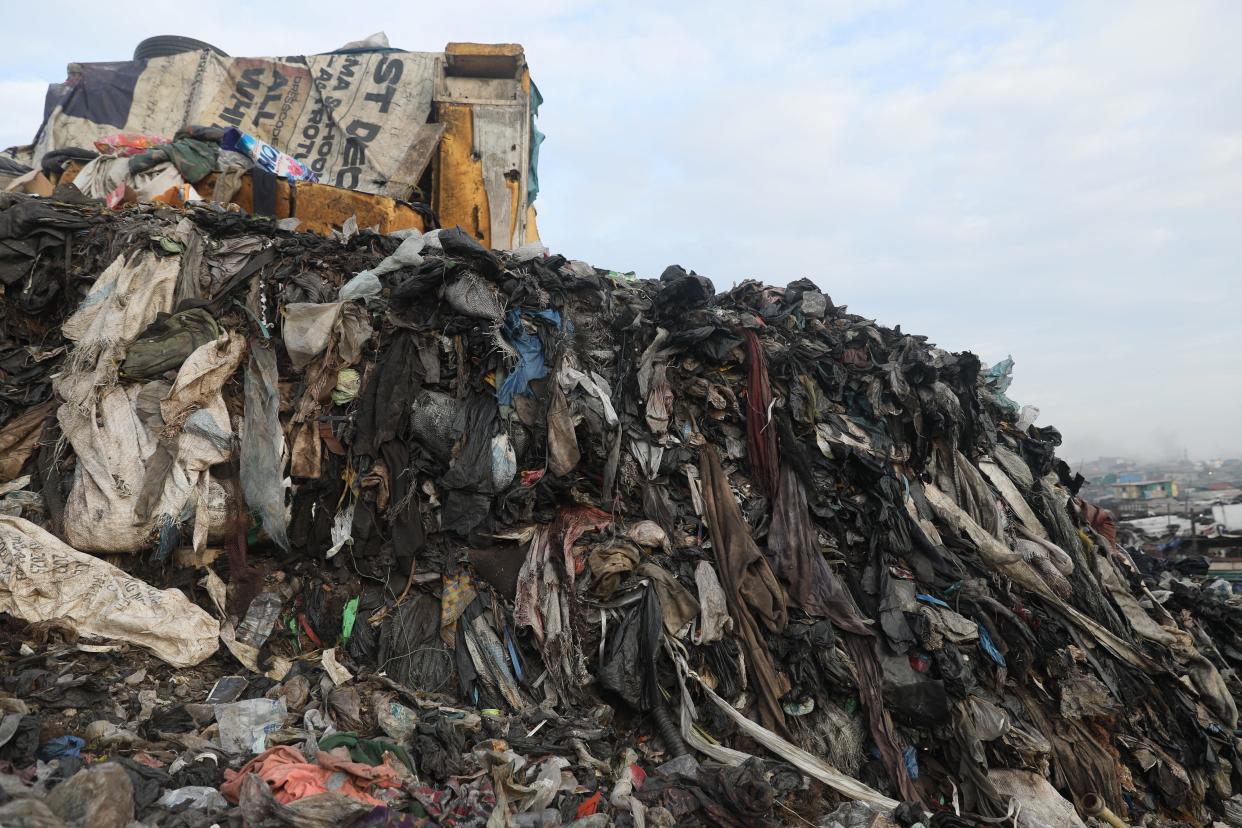'Brandy Hellville & the Cult of Fast Fashion' doc examines controversial retailer Brandy Melville

A new HBO Original documentary takes viewers inside the world of a fast fashion purveyor: controversial Italian fashion brand Brandy Melville.
"Brandy Hellville & the Cult of Fast Fashion" highlights the brand, which infamously makes clothes of only one size, and accusations of racism and misogyny in their stores by former employees, executives and fashion insiders.
The Italian retailer, founded in the early 1980s, has stores in over 15 countries. The brand rose in popularity in the U.S. among teen girls in the 2010s and with its "one size fits all" clothing, Brancy Melville is often linked to the "skinny aesthetic" promoted on social media sites like Tumblr at the time.
The documentary highlights how this marketing sexualized and promoted unrealistic beauty standards among young girls. At a point, the brand was worn and promoted by celebrities like Kaia Gerber and Kendall Jenner.
The documentary also looks into the company's impact on the environment and promotion of overconsumption. Here's what we learned.
Brandy Melville racism accusations: CEO accused of excluding Black customers
In 2021, an ex-store employee, Franco Sorgi, told Business Insider that Brandy Melville CEO Stephan Marsan told him he did not want overweight or Black people to wear his clothing. Sorgi opened the first Brandy Melville store in Canada in 2012 and, at one point, owned 11 locations.
Sorgi claimed Marsan said he wanted "good-looking rich little girls" as his customers, to sway the popular high school girls and increase sales.
Business Insider reported at the time that it spoke to more than two dozen current and former employees, who claimed the company's employment practices were impacted by race. Its investigation also uncovered claims that Marsan and other executives regularly made jokes about Adolf Hitler in text messages, including an image that reportedly showed Marsan's face edited onto Hitler's body.
The investigation is highlighted in the documentary, as well as testimony from Black former employees about the brand's alleged racist and discriminatory work practices, including Black employees pushed to work backstock, claims reminiscent of accusations by former Abercrombie employees.

Kali, who is Black and worked in the Broadway store in New York City, said she started in the fitting room and moved over to the stock room.
"There was no white people working in the stock room. If you were white, you had to be in sight," she said. "We all knew it was not right that we were all pushed in the back, out of sight, but it wasn't something we were necessarily mad about."
'Brandy Hellville' takes deeper look at fast fashion pitfalls
The HBO documentary examines the company's promotion of fast fashion, or inexpensive and trendy clothing produced by mass-market retailers.
The practices of brands like Brandy Melville, Shein and Fashion Nova, result in clothing that finds its way into landfills even when attempts are made to donate clothing. The clothing ends up elsewhere, like Accra, Ghana's capital and home to the country's secondhand market and called a "dumping ground" for America's unwanted clothing.
"From the beginning of the supply chain to the end, we're all being exploited by the same system," Chloe Asaam, a Ghanaian fashion designer and program manager for The OR Foundation, says in the documentary.

Textile waste that arrives in Accra are either burnt or end up in the gutters before they're swept out to sea. The documentary showed a beach along the Gulf of Guinea where mountains of garments clog the shoreline and, likely, litter the sea floor. A test of the water here showed 96 microfiber counts in a 10 milliliter sample, Joe Ayesu of The OR Foundation said.
This contamination would then end up in local residents' bodies via the fish they eat, Ayesu said.
Former Brandy Melville employees share their stories on social media
Brandy Melville is known for doing little traditional marketing and instead relying on its young employees and customers for promotion on its Instagram page. According to the documentary, their social media account is run by the company's mysterious CEO.
Delaney Rinke, whose TikTok about her Brandy Melville experience went viral, opened up to People magazine in an interview published Wednesday. Rinke was scouted by the retailer at 14 and worked there for four years.
"I was really, really young, so I was quite miserable at work," Rinke told the outlet, later recalling an "insane" practice where employees were required to take photos of their outfits.
"Photos had to be very staged and make us look a lot older than we were," the now 22-year-old said.
Despite this, the film's director, Eva Orner, told Teen Vogue in an interview published Wednesday it was hard finding former employees who wanted to appear on camera. "Everyone was very young when they worked there, and now they're young women embarking on careers or in their twenties," she told the outlet. "A lot of them were really scared."
Brandy Melville accused of copying its clothes off employees' fashion
Kali, the former New York store employee, alleged "the higher-ups" loved a pair of lavender high-waisted pants she wore to work one day and they bought the product online to copy the style.

"They were able to mass-produce what these cool girls were already wearing," Business Insider senior features correspondent Kate Taylor, one of the expert voices in the doc, said. "In some cases, the names of these things on the Brandy Melville website, (they'll) be like Jocelyn shirt. And it'll be because this shirt was literally purchased off of Jocelyn's back."
One of the participants, who asked to remain anonymous due to ongoing litigation, claimed Brandy Melville CEO Stephan Marsan would send girls from Los Angeles' more affluent neighborhoods on shopping trips to curate outfits from various stores and copy the looks, with some alterations.
How to watch 'Brandy Hellville & The Cult of Fast Fashion'
"Brandy Hellville & The Cult of Fast Fashion" is available to stream on Max.
Contributing: KiMi Robinson
This article originally appeared on USA TODAY: Brandy Melville doc on HBO unveils racism, overconsumption and more
